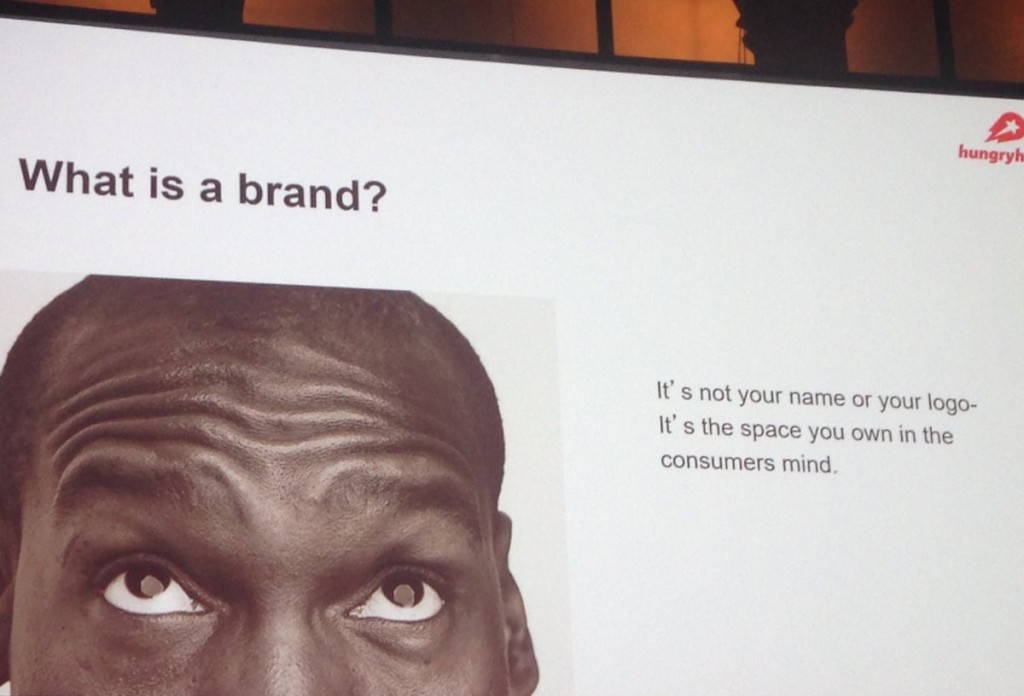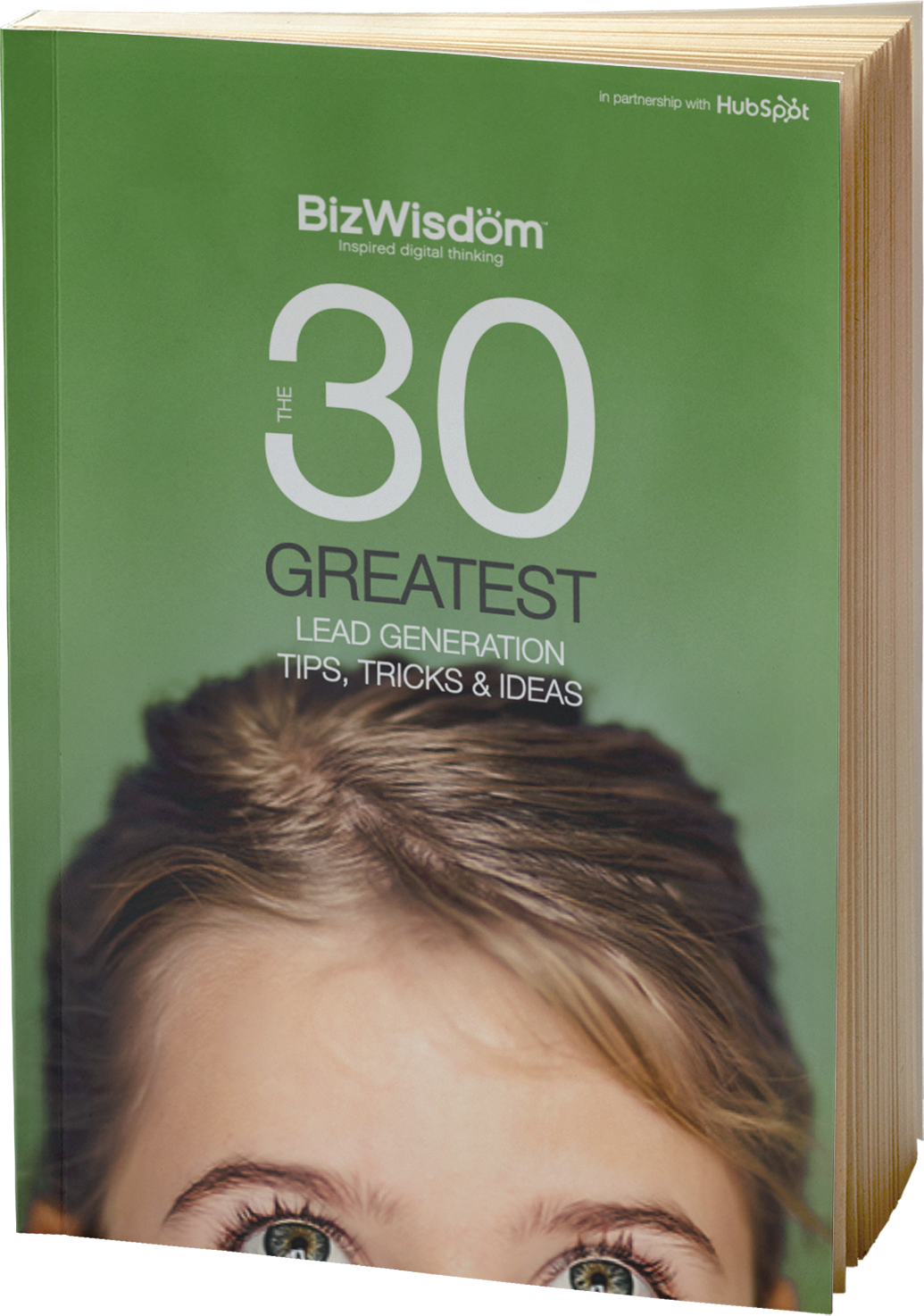
Trends from Digital Marketing World Forum Amsterdam 2017
In my role as director of BizWisdom, I’m very lucky to attend marketing conferences around the globe, not nearly as many as I would like to, but I do make an effort to get to as many as I can. Whilst there are always presenters that leave a mark on me personally, it’s quite often the broader themes that emerge from these conferences that are the most revealing. You get a sense of the challenges that marketers are grappling with and it’s amazing how quickly the marketing zeitgeist – so to speak – can shift, seemingly overnight.
At this years’ Digital Marketing World Forum in Amsterdam, I notcied just such a shift. Here are some of the emerging trends which I observed from the DMWF.
Brand & Audience
If you were not already aware, brand is back and it is back in a big way. Brand sentiment, brand awareness, brand engagement, it was amazing just how much of the conference was centered around the brand. But more inspiring, was that it was almost always mentioned with reference to the brand’s audience. I think it speaks a lot of the maturity of digital, that brand and audience is now the underlying theme of a conference like the DMWF and not technology and platforms. In fact much of day 2 was spent discussing artificial intelligence and machine learning, yet the message was still how to utilise technology to facilitate genuine one to one communication.
Tealium’s David Morris expanded on this when he said “We are now at a place where we can provide a one to one marketing experience, at scale”. This concept of one to one communication was consistent throughout the conference, Sales Manago’s Robbert-Eirc Aalders spoke about using technology to capture a “single customer view” and communicate with them in a timely, personalised way, based on their actions and needs.
This sentiment was summed up by Donone Nutricia Marketing Director Idil Tasar Kavakli who said “Stop thinking of your audience as females between a certain age and understand what her interests and desires are.”
Head of Marketing at Jobatical, Lauren Proctor spoke about the concept of the digital age “creating lonely people”, but she noted that this is a great opportunity for brands to impact the lives of their consumers in a real way “guess what?” she cried, “We can be a brand and make someone’s day”.
Delivery Hero’s Beth James made the point that “The key to a strong brand is empathy. Understand your customers and their needs and speak to them.” and had this interesting definition of what “brand” is or rather what it isn’t “It’s not the name on your logo, it’s the space you own in the consumer’s mind.”
But it was probably the highly quotable Jannis Rudzki-Weise who summed up the sentiment of the conference when he said “You are not the hero of your story, your customer is… but you can be robin”
"You are not the hero of your story, you customer is… but you can be robin" #dmwf #marketing #contentmarketing pic.twitter.com/vdqMJmJXSg
— Sam McEwin (@sammcewin) April 4, 2017
“You are not the hero of your story, your customer is… but you can be robin”
User Generated Content
User generated content was the big theme right throughout the conference and there was at least two representative’s from user generated content platforms in attendance. One of those was Sophie Bagley from Stackla who spoke about the success of HelloWorld in driving 10,000 bookings from user generated content in just 7 days. She also noted that Stackla’s clients were “using user-generated content at every stage of the purchasing cycle”
Is user generated content the new "king"? @stackla's clients are using user generated content at every stage of the purchasing cycle #dmwf pic.twitter.com/EVJOoXsPZW
— Sam McEwin (@sammcewin) April 3, 2017
This tied into another theme which was brands relinquishing control of their message. Sophie’s call to action was to “curate, not create content.” Domino’s Netherlands CMO Nicky Claeys added that relinquishing control of the message to your users is “a little nerve-wracking because it is unscripted, but then that is why it is appealing.” This willingness of brands to let their audience tell the story came up again and again during the conference and to hear big brands like Dominos speak with such authority and such maturity about these topics, was a little surprising, if not very exciting.
"It's a little nerve wracking because it is unscripted, but then that is why it is appealing." Nicky Claes of @dominos #dmwf pic.twitter.com/1ga6k6IOHZ
— Sam McEwin (@sammcewin) April 3, 2017
My takeaway was, If the old cry was to release some control of the marketing message, today’s is to give them the keys to the bus.
“If the old cry was to release some control of the #marketing message, today’s is to give them the keys to the bus.”
‘Let your customers tell your story’ great campaign by @hungryhouse #DMWF pic.twitter.com/ewV4cDT84a
— Shelley Fletcher-Bryant (@ShelleyFletcher) April 3, 2017
Do you want to know how to apply these principles and more to generate more leads from your online marketing? Learn with our ebook “The 30 Greatest Lead Generation Tips, Tricks & Ideas!”
Influencer Marketing
The use of influencers by brands in their digital marketing strategy, was another interesting theme and what struck me personally, was just how comfortable big brands have become in leveraging influencers to support their campaigns. One of the standout presenters was Social Chain founder Steven Bartlett, who built a publishing company by buying up Facebook groups and Mummy Blogs. He spoke about the importance of matching your brand with the right influencer and was the first to introduce the concept of the micro-influencer. His point, “The only way to reach a student in Leeds efficiently, is to use students in Leeds.” Paz Zvick Director Marketing Partnerships, Glasses USA supported this view, saying “It’s not just about reach, or the amount of followers, it’s about the match. Is the influencer the right match for your content and do the genuinely feel passionate about your message?”
"There is no other way to efficiently reach students in Leeds, other than by using student in Leeds" @SocialChain on #microinfluencers #dmwf pic.twitter.com/fx5k2PeYvz
— Sam McEwin (@sammcewin) April 3, 2017
Doritos used leading ‘gamers’ as influencers to reach their audience of youthful technologically advanced types that they dubbed “Hyperlifers”. One of the keys to Dorito’s strategy, was the long term relationship they have formed with their influencers. The two influencers who they used in their virtual reality battle, had worked with Doritos for over 3 years. Pepsico Digital Activation Manager Silvia Pereira, said that it was this long term relationship that had effectively made their influencers brand advocates, who’s fans expected them to do “crazy things each year” with the Doritos brand. They too spoke about the impact of micro-influencers as a critical component of campaign success.
Former Global Manager of Digital Marketing at Adidas, Valerie Fuchs made an interesting point when she said “We should not think about channels anymore, we should think about who is the influencer.”
"Influencers that reach millions of people but not your target group are a waste of time and money" #DMWF @Danone @adidas @Bugaboo pic.twitter.com/eR2h9Dekns
— Angela Herberholz (@A_Herberholz) April 3, 2017
Dominos Pizza also used influencers extensively during their Free Pizza Lunch campaign where they allowed influencers to invite their fans to receive a free pizza lunch, amassing a huge amount of user generated content along the way.
???? #GenZ: "If you want to connect with this group, you have to be one of them" – @dominos ???? #DMWF @erdincsacan @Mayows #DigitalMarketing #smm pic.twitter.com/Upv4OqfHVE
— Glen Gilmore (@GlenGilmore) April 3, 2017
The other interesting point that was raised regarded the commercialisation of the influencer. Beltran Doboa Global Marketing & Sales Manager at Bugaboo noted that “Today anyone can be an influencer and as that happens, influencers are becoming increasingly commercial. That is fine as long as you can find real, authentic influencers, there is nothing wrong that.”
Actionable Data-Driven Marketing
The final theme that I noticed, was that it seems brands are getting much better at turning big data into actionable marketing strategies. Throughout the conference, most of the speakers spoke not about how to analyze or collect data, but rather how to take action upon it.
Paul Poel’s kicked off proceedings with discussion about using data-driven methodology to drive efficiency and claimed that shifting to a data-driven model had reduced the CPA of Philip’s male grooming products by 20% in the USA and 56% in Germany.
@Philips reducedCPA of male grooming products by 20% in the USA and 56% in Germany by adopting data driven #marketing principles. #DMWF pic.twitter.com/wuazWn8LCT
— Sam McEwin (@sammcewin) April 3, 2017
Trivago then discussed how they had leveraged their own first party data to create newsworthy content as part of their PR strategy by making their data “searchable, analyze-able and actionable” for news organisations and PR firms.
@trivago is making #bigdata "searchable, analyzable and comprehensible" as a PR strategy. #dmwf pic.twitter.com/9SuLxJgHkZ
— Sam McEwin (@sammcewin) April 3, 2017
Blundstone Osterberger, Chief Digital Officer at C3 then reinforced the importance of taking actionable insight from the data, making the point that “Data can tell you that tomato is a fruit, Insight tells you not to put it in a fruit salad.”
"Data can tell you that tomato is a fruit, insight tells you not to put it in a fruit salad."Blundstone Osterberger at #dmwf #Marketing pic.twitter.com/I8gTaz3PAB
— Sam McEwin (@sammcewin) April 3, 2017
Shu Wang, director of transformation at Philips then followed that up with the point that “a dashboard does not generate insight”
"A dashboard does not generate insight" Shu Wang director of transformation at Philips #dmwf #DigitalMarketing pic.twitter.com/pdvM285H85
— Biz Wisdom (@BizWisdomAgency) April 3, 2017
Sam McEwin
Director BizWisdom
Author Bio:
Sam McEwin is the founder and Director of Melbourne based digital marketing agency BizWisdom. Sam enjoys sharing his passion for data driven digital marketing with businesses who love what they do and who are looking to grow their business online. Sam loves nothing more than nurturing client relationships and transforming ideas, no matter how big or small, into success stories. Sam is a regular contributor to BizWisdoms’ blog and guest speaker at digital media industry events and workshops.





